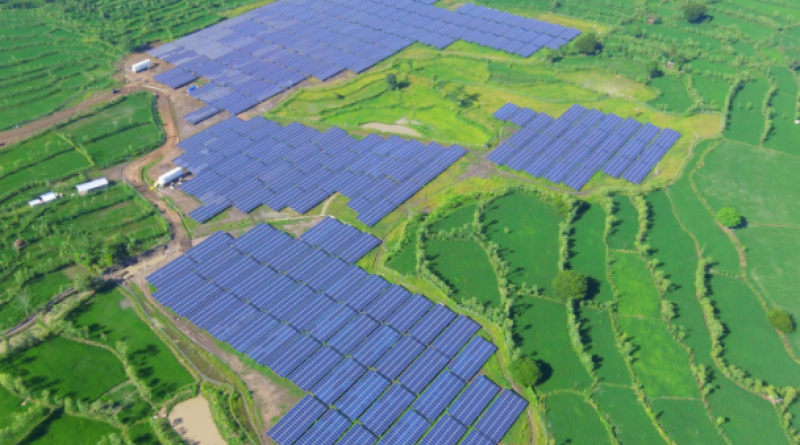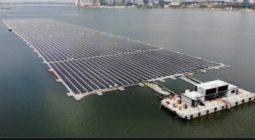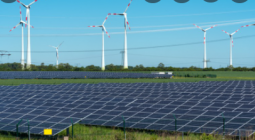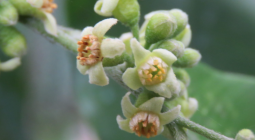Innovators in Indonesia are advancing renewable energy

The Indonesian government promises to almost triple the share of renewables in its energy mix in the next three years. That would reverse an investment climate in which fossil fuels saw 3 times more capital than renewable energy between 2016 and 2019. It would also require the nation’s monopoly power provider, Perusahaan Listrik Negara (PLN), to approve new projects at a rate that entrepreneurs don’t expect now. Moreover, all the distribution to customers is strictly handled by the state-owned company.
Accordingly, entrepreneurs work with global networks to improve the state’s literacy and risk appetite. One network is the Clean Energy Investment Accelerator. The CEIA works as a joint endeavor coordinated by Allotrope Partners, World Resources Institute (WRI), and the United States National Renewable Energy Laboratory (NREL) to accelerate renewable energy solutions for large electricity consumers in key emerging markets. CEIA brings together corporate buyers in Indonesia and magnifies their joint ideas to develop an enabling regulatory environment for accelerating renewable energy investment and use.
"How renewable energy fluctuates were claimed to be the greatest risk by potential investors to Indonesia," says Rio Pramudita, a business development analyst for developer Akuo Energy. Because of the intermittent nature of renewable energy, the state-owned company must be ready to supply the client if renewable energy is unavailable. "Renewable energy faced some hurdles because they have to 'pay' for the uncertainty that PLN has to bear," says Pramudita. In that context, a range of partners use a range of tools to promote the country’s renewable ecosystem.
Can renewable energy thrive in Indonesia’s current energy landscape?
Since its inception in 2018, CEIA has formed a taskforce in Indonesia that comprised of more than 25 corporate buyers. These corporate buyers are global firms with operations in Indonesia. They are among the companies who wish to source their energy from renewable sources but have discovered there is limited supply.
There are reasons to discern a clean-energy economy growth curve in the country.
Independent Power Producers (IPP) that generate renewable energy remain limited in Indonesia. Currently, they supply 26 percent of national energy, and most lack transmission and distribution connections to sell energy directly to end users. Building distribution lines, of course, is expensive: The other option is to lease existing ones through PLN. "Transmission and distribution lines are a strategic asset of the state," says Gina Lisdiani, director of Allotrope Partners Indonesia, part of the Clean Energy Investment Accelerator Indonesia.
"Because Indonesia is an archipelago, this transmission and distribution network becomes even more critical," adds Lisdiani.
Although this means that IPPs generally cannot sell directly to end consumers, or be off the grid, some companies in Indonesia use their own solar panels to operate their factories and manufacturing facilities. For example, PT. Coca Cola Amatil Indonesia has this kind of solar panel arrangement with a capacity of 7.13 MW. However, an arrangement such as this is not completely off the grid. If something goes wrong and the supply falls below what the factory requires to run, PLN would supply electricity to the factory.
If industry has more supply than it needs (such as during the Eid Mubarak vacation period), they can sell it to PLN, a practice known as net metering. PLN smiles on this innovation, perhaps because it improves electrical supply without requiring new investment. "Net metering exists in Indonesia. In some cases, the PLN can reduce the price by roughly 35 percent. The process for obtaining a permit, or simply determining whether it is possible, is not uniform and depends on the location and permit by PLN regional office in the area," adds Lisdiani.
Private-sector renewable energy purchasing
For generating and distributing renewable energy without running into the corruption that comes with permits, CEIA has worked with PLN to create and disseminate a Renewable Energy Certificate (REC). "It is hoped that it could serve as a catalyst for PLN to build and/or permit more renewable energy projects," says Lisdiani.
Renewable energy certificates provide a simple way for businesses, institutions and individuals to offset their carbon footprint and support renewable energy. As more companies proclaim commitment to climate action and renewable energy, purchasing RECs allows businesses to source their energy from renewable sources. When demand rises, the possibility to create renewable energy power plants rises with it.
"They [corporate buyers] are also concerned about whether a renewable energy power plant has reached its break-even point. They would rather fund and incentivize generation that is not yet profitable [so they can realize higher returns in the future]. This is critical in order to assist project developers who wish to launch a renewable energy project in Indonesia," Lisdiani says.
These enabling conditions and potential incentives are essential for project developers from the start of the project. "A new project developer without a portfolio will face enormous challenges. One of them is obtaining financing from a bank," Lisdiani explains. "And REC has the opportunity to play a significant role in resolving some of the issues."
The first solar off-grid system in Indonesia to serve communities
Despite hurdles, there are reasons to discern a clean-energy economy growth curve in the country. Akuo Energy, a renewable energy developer, has developed the first solar off-grid electrification systems that powers three villages in Berau, Kalimantan.
Because Akuo Energy is off-grid, it both generates and distributes energy directly to customers without running through the state pricing system. This project was mostly funded by the Millennium Account Challenge Indonesia and United States Agency for International Development (USAID). The solar off-grid is managed by a joint venture between Akuo Energy and the village-owned company (Badan Usaha milik Desa; Bumdes), with the latter owning the majority.
One common misconception is that since Indonesia is a tropical country situated on the Equator, we would have been able to deploy solar energy everywhere.
The joint venture was able to obtain the required permit by presenting their project in front of the ministry, emphasizing the importance of electricity access in these three villages and how their distance from the transmission line is so far that the state-owned company cannot benefit from it. There is also a regulation that restricts the price they may charge customers; the ceiling is the price set by the state-owned company. If the joint venture wishes to raise the price above what the state-owned company has set, they must present the case to the Regional House Representative with rigorous justification.
"One common misconception is that since Indonesia is a tropical country situated on the Equator, we would have been able to deploy solar energy everywhere," says Pramudita, who trained as a mechanical engineer. "There is a lot of heat in Indonesia, but what we need for solar panels are photons. As a result, different renewable energy technologies would be appropriate in different parts of Indonesia."
Some parts of Indonesia are cloudy most of the year, while others are not. East Nusa Tenggara is one of the few places in the world where it is never cloudy. "Other locations such as some parts of Sumatera, the south coast of Papua, and West Java are not suitable for solar panels but are suitable for wind turbines," explains Pramudita. Indeed, a study shows that Sukabumi and Garut, in West Java, are among the potential sites for wind turbines.
In a challenging environment, organizations and businesses such as these show a way forward. CEIA brings together renewable energy buyers and consolidates a unified voice to the government, whereas Akuo Energy is able to operate off-grid solar panels. This demonstrates a few of the opportunities for patient renewable energy investment in Indonesia.
greenbiz




